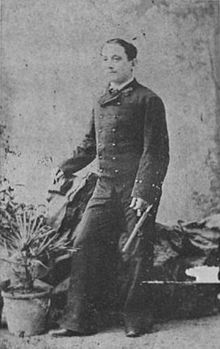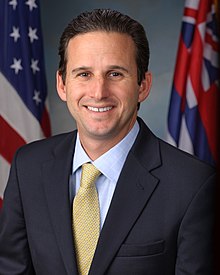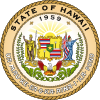The Hawaii Portal Hawaii (/həˈwaɪ.i/ hə-WY-ee; Hawaiian: Hawaiʻi [həˈvɐjʔi, həˈwɐjʔi]) is an island state of the United States, in the Pacific Ocean about 2,000 miles (3,200 km) southwest of the U.S. mainland. One of the two non-contiguous U.S. states (alongside Alaska), it is the only state not on the North American mainland, the only state that is an archipelago, and the only state in the tropics. Hawaii consists of 137 volcanic islands that comprise almost the entire Hawaiian archipelago (the exception, which is outside the state, is Midway Atoll). Spanning 1,500 miles (2,400 km), the state is physiographically and ethnologically part of the Polynesian subregion of Oceania. Hawaii's ocean coastline is consequently the fourth-longest in the U.S., at about 750 miles (1,210 km). The eight main islands, from northwest to southeast, are Niʻihau, Kauaʻi, Oʻahu, Molokaʻi, Lānaʻi, Kahoʻolawe, Maui, and Hawaiʻi, after which the state is named; the latter is often called the "Big Island" or "Hawaii Island" to avoid confusion with the state or archipelago. The uninhabited Northwestern Hawaiian Islands make up most of the Papahānaumokuākea Marine National Monument, the largest protected area in the U.S. and the fourth-largest in the world. Of the 50 U.S. states, Hawaii is the fourth-smallest in land area and the 11th-least populous; but with 1.4 million residents, it ranks 13th in population density. Two-thirds of Hawaii residents live on O'ahu, home to the state's capital and largest city, Honolulu. Hawaii is among the country's most demographically diverse states, owing to its central location in the Pacific and over two centuries of migration. As one of only seven majority-minority states, it has the only Asian American plurality, the largest Buddhist community, and largest proportion of multiracial people in the U.S. Consequently, Hawaii is a unique melting pot of North American and East Asian cultures, in addition to its indigenous Hawaiian heritage. Settled by Polynesians sometime between 1000 and 1200 CE, Hawaii was home to numerous independent chiefdoms. In 1778, British explorer James Cook was the first known non-Polynesian to arrive at the archipelago; early British influence is reflected in the state flag, which bears a Union Jack. An influx of European and American explorers, traders, and whalers soon arrived, leading to the decimation of the once-isolated indigenous community through the introduction of diseases such as syphilis, tuberculosis, smallpox, and measles; the native Hawaiian population declined from between 300,000 and one million to less than 40,000 by 1890. Hawaii became a unified, internationally recognized kingdom in 1810, remaining independent until American and European businessmen overthrew the monarchy in 1893; this led to annexation by the U.S. in 1898. As a strategically valuable U.S. territory, Hawaii was attacked by Japan on December 7, 1941, which brought it global and historical significance, and contributed to America's entry into World War II. Hawaii is the most recent state to join the union, on August 21, 1959. In 1993, the U.S. government formally apologized for its role in the overthrow of Hawaii's government, which had spurred the Hawaiian sovereignty movement and has led to ongoing efforts to obtain redress for the indigenous population. (Full article...) This is a Featured article, which represents some of the best content on English Wikipedia..
Mauna Loa (/ˌmɔːnə ˈloʊ.ə, ˌmaʊnə -/, Hawaiian: [ˈmɐwnə ˈlowə]; lit. 'Long Mountain') is one of five volcanoes that form the Island of Hawaii in the U.S. state of Hawaii in the Pacific Ocean. Mauna Loa is Earth's largest active volcano by both mass and volume. It was historically considered to be the largest volcano on Earth until Tamu Massif was discovered to be larger. Mauna Loa is a shield volcano with relatively gentle slopes, and a volume estimated at 18,000 cubic miles (75,000 km3), although its peak is about 125 feet (38 m) lower than that of its neighbor, Mauna Kea. Lava eruptions from Mauna Loa are silica-poor and very fluid, and tend to be non-explosive. Mauna Loa has likely been erupting for at least 700,000 years, and may have emerged above sea level about 400,000 years ago. Some dated rocks are 470,000 years old. The volcano's magma comes from the Hawaii hotspot, which has been responsible for the creation of the Hawaiian Island chain over tens of millions of years. The slow drift of the Pacific Plate will eventually carry Mauna Loa away from the hotspot within 500,000 to one million years from now, at which point it will become extinct. (Full article...) This is a Good article, an article that meets a core set of high editorial standards.
Robert Napuʻuako Boyd (Hawaiian pronunciation: [ˌnɐpuʔuˈwɐko]; September 2, 1864 – September 9, 1914) was a Native Hawaiian insurgent leader during the latter years of the Kingdom of Hawaii. Educated under the government-funded study program of King Kalākaua, he attended the Royal Naval Academy in Livorno, Italy. He became a friend of Robert William Wilcox, another Hawaiian student enrolled in Turin. They were both recalled back in Hawaii after the government stopped funding their education. Back home, he participated with Wilcox in the unsuccessful Wilcox rebellion of 1889 aimed at restoring political power to the king. (Full article...) Selected Picture - 'Ōlelo (Language) -This section is here to highlight some of the most common words of the Hawaiian Language, ʻŌlelo, that are used in everyday conversation amongst locals.
ʻOno
Delicious, tasty, savory; to relish, crave; deliciousness, flavor, savor
State Facts
State Symbols:
Selected article -Brian Emanuel Schatz (/ʃɑːts/ SHAHTS; born October 20, 1972) is an American educator and politician serving as the senior United States senator from Hawaii, a seat he has held since 2012. A member of the Democratic Party, Schatz served in the Hawaii House of Representatives from 1998 to 2006, representing the 25th legislative district; as the chairman of the Democratic Party of Hawaii from 2008 to 2010; and as the 12th lieutenant governor of Hawaii from 2010 to 2012. Schatz also worked as chief executive officer of Helping Hands Hawaii, an Oahu nonprofit social service agency, until he resigned to run for lieutenant governor of Hawaii in the 2010 gubernatorial election as Neil Abercrombie's running mate. He served as lieutenant governor until December 26, 2012, when Abercrombie appointed him to serve the rest of Daniel Inouye's U.S. Senate term after Inouye's death. Schatz was the youngest U.S. senator in the 112th Congress. He won the 2014 special election to complete the remainder of Inouye's Senate term with just under 70% of the vote, was reelected in 2016 with 73.6%, and again in 2022 with 71.2%. (Full article...) Did you know? -
Hawaii News
Wikinews Hawaii portal
Quotes -"In what other land save this one is the commonest form of greeting not 'Good day,' nor 'How d'ye do', but 'Love'? That greeting is 'Aloha': love, I love you, my love to you... It is a positive affirmation of the warmth of one's own heart-giving." — Jack London On this day...
Related portalsTopicsCategoriesAssociated WikimediaThe following Wikimedia Foundation sister projects provide more on this subject:
SourcesDiscover Wikipedia using portals |

























